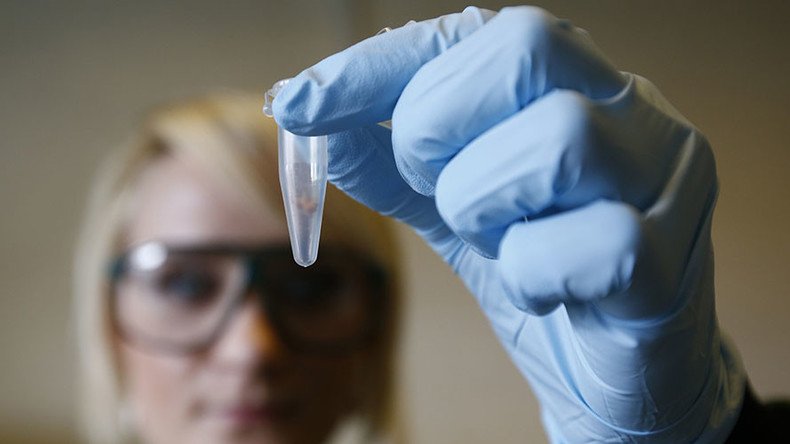Sex gene: Scientists find DNA determines the age you lose your virginity

Scientists claim to have discovered the ‘risk-taking’ genes that influence the timing of when people lose their virginity.
Genetic differences account for a quarter of the variation in age at which people pop the proverbial cherry, researchers have found.
Environmental factors – such as religious beliefs, family background and peer pressure – make up the rest.
Cambridge University boffins analyzed data on 125,000 British people, identifying 38 genetic variants that were linked to the age at which they lost their virginity.
Govt focuses on porn as 'concerns' in rise of teenagers having anal sex https://t.co/0I1vgbUrxOpic.twitter.com/nH4oaKYBp2
— RT UK (@RTUKnews) April 13, 2016
The 38 sections of DNA include genes that drive reproductive biology, such as the release of sex hormones and the age of puberty. Others appear to impact appearance, personality and behavior.
The most common age to lose virginity for both men and women was found to be 18, researchers found.
The scientists also found that gene variations affecting hair color also influence sexual behavior, with redheads more likely to lose their virginity later in life.
Another gene catalogued by researchers, MSRA, was linked to irritability, found in people who lost their virginity later than average.
“Genetically predicted skin freckling seemed to promote later AFS [adult first sexual experience] in women but not in men and genetically predicted red hair seemed to promote later AFS in both men and women,” the report states.
Holy god! This Irish Catholic sex-ed video will turn you celibatehttps://t.co/FY9xRIzG0lpic.twitter.com/OqGGnlenTH
— RT UK (@RTUKnews) January 4, 2016
British scientists compared their results with 260,000 people in Iceland and the US, according to their report in journal Nature Genetics.
“While social and cultural factors are clearly relevant, we show that age at first sexual intercourse is also influenced by genes which act on the timing of childhood physical maturity, and by genes which contribute to our natural differences in personality types,” said John Perry, a senior scientist at the Medical Research Council’s epidemiology unit at Cambridge University.
“One example is a genetic variant in CADM2, a gene that controls brain cell connections and brain activity, which we found was associated with a greater likelihood of having a risk-taking personality, and with an earlier age at first sexual intercourse and higher lifetime number of children.”
Young Greek women selling sex at pound-shop prices https://t.co/aOAfb3Yv5dpic.twitter.com/2sPeTiELis
— RT UK (@RTUKnews) November 29, 2015
Researchers also found a link between the early onset of puberty – which is often caused by poor nutrition – and the age of first sexual encounter.
Bristol University clinical epidemiologist George Davey Smith said this has knock-on effects on the children’s adult lives.
“It suggests that earlier puberty does influence early age of sexual debut, which then appears to have other consequences such as, all things being equal, earlier first birth, having more children, less likely to remain childless, and poorer educational outcomes.”
Scientists hope to use this research to inform future preventative efforts to delay puberty in young children.












